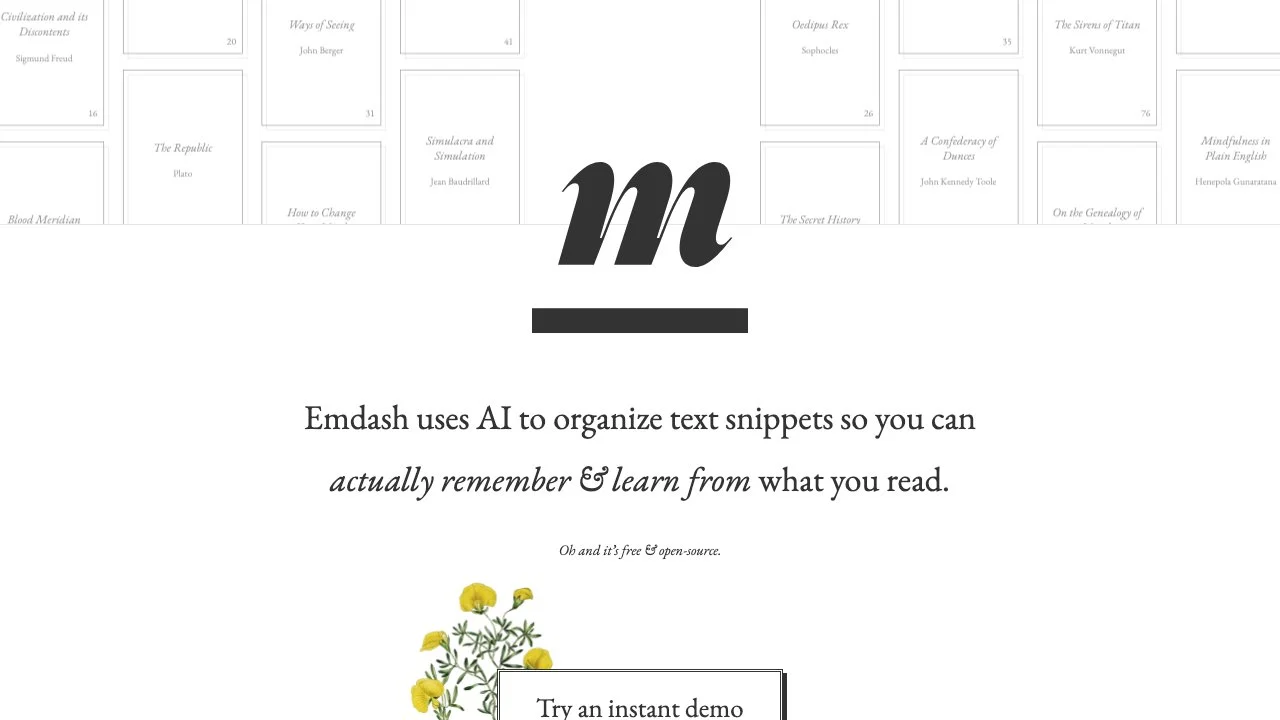Emdash revolutionizes the way readers interact with their book highlights by leveraging artificial intelligence to organize text snippets effectively. This innovative tool ensures that users can remember and learn from their readings more efficiently. Emdash stands out by offering a free and open-source platform, inviting users to experience its capabilities through an instant demo.
One of the key features of Emdash is its ability to perform on-device AI analysis, identifying passages with similar ideas from various authors, often presenting them from different perspectives. This feature, known as Conceptual cousins, enriches the reading experience by providing diverse viewpoints on similar themes.
Moreover, Emdash enhances the search functionality with instant semantic search, allowing users to find what they're looking for through both full-text search and deeper semantic matching of fuzzy ideas. This ensures that users can easily locate specific information or concepts within their highlights.
Organization is made simple with Emdash, as users can tag, rate, note, and reflect on their highlights. This organized approach facilitates a deeper engagement with the material. Additionally, users have the option to export their organized highlights back to epub format for review on their e-readers, ensuring flexibility in how they interact with their notes.
Emdash also introduces an element of discovery with its 'Roll the dice, change your lens' feature, which unearths forgotten ideas through random discovery. This feature encourages users to re-examine and rephrase dense concepts, offering new insights and understanding.
Commitment to user freedom is evident in Emdash's no lock-in policy, allowing users to bring in their highlights from various sources, including Kindle, json, csv, or manual input. Exporting to open formats is instantaneous, ensuring that users' data remains accessible and portable.
As an open-source and offline-first tool, Emdash prioritizes user privacy and data security by keeping the collection on the user's device until they opt into advanced features. Future developments include Monk-Mode Lenses for summarizing and rephrasing complex ideas, Socratic switch for interviewing books, cross-device syncing and backup, publishing/sharing excerpts, and sturdier gardening tools, promising an even more comprehensive and user-friendly experience.

